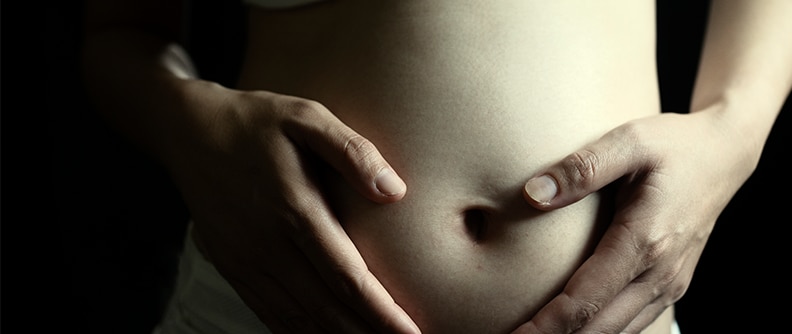It’s not pleasant to think about, but some pregnancies end early because of miscarriages and ectopic pregnancies. It’s important to understand what these are, what causes them, and how to recover from them. We’ve explained them below.
Remember that in the majority of cases, people who have miscarriages and ectopic pregnancies go on to have normal pregnancies later on.
Ectopic pregnancy
An ectopic pregnancy occurs when a fertilized egg attaches to tissue outside the uterus. When this type of pregnancy happens, the fetus cannot grow normally. It can be extremely painful and even dangerous for the mother.
In the majority of cases, ectopic pregnancies occur in the fallopian tubes. They usually happen because of damage to the fallopian tubes themselves. Other medical conditions, like pelvic inflammatory disease, can cause this damage. However, clinicians often don’t know what caused an ectopic pregnancy. Don’t blame yourself — there’s nothing you could have done to prevent it.
Ectopic pregnancy symptoms
Symptoms of ectopic pregnancy may include belly or pelvic pain that starts 6 to 8 weeks after your first missed period. The pain may start on one side and then spread, or it may be worse if you move or strain. Another symptom is bleeding, which can be light (often a brown discharge) to heavy. It’s possible to experience only pain or bleeding and not both symptoms.
If you have a positive pregnancy test and symptoms of an ectopic pregnancy, a clinician will examine you. You’ll likely need a pelvic exam, blood tests, and an ultrasound to locate the fertilized egg.
Ectopic pregnancy treatment
Some people don’t require treatment for an ectopic pregnancy. The body simply ends the pregnancy and absorbs the egg over time. Others need treatment to make sure an ectopic pregnancy doesn’t rupture and lead to serious blood loss. Your clinician may recommend medications or surgery to remove the fertilized egg.
It’s important to understand that with an ectopic pregnancy, there is no way for the fetus to develop properly. If you’ve lost a pregnancy this way, allow yourself time to grieve and process the loss. Fortunately, many people who have had ectopic pregnancies go on to have normal, healthy pregnancies later on.
Miscarriage
Miscarriage is more common than many people think. Miscarriages usually occur within the first 12 weeks of pregnancy. In most cases, they happen because something is wrong with the fetus, not because you did or didn’t do something.
People who are 35 or older are at higher risk of miscarriage. You might also increase your risk if you smoke, use illicit substances, or drink alcohol during your pregnancy. Obesity, exposure to toxins in your environment, and heavy caffeine consumption are also risk factors.
A miscarriage might occur if you’ve already had multiple miscarriages. It might happen if you experience any physical trauma during your pregnancy or if you have any problems with your uterus.
Miscarriage symptoms
When a miscarriage occurs, it can usually be identified by several symptoms. You may experience:
- Abdominal cramps that can be very painful
- Lower back pain that’s sharp or dull
- Signs of infection, like fever or chills
- Vaginal bleeding or the passage of tissue or blood clots from your vagina
Your clinician can diagnose a miscarriage by performing a pelvic exam. If your cervix is dilated, or opening, it is a sign of having a miscarriage.
Remember that bleeding can occur during normal pregnancies and doesn’t necessarily indicate a miscarriage. You might need multiple visits, blood tests, and ultrasounds to determine whether the pregnancy is a miscarriage.
Miscarriage treatment
You may not need any medical treatment for a miscarriage. For many, the body naturally passes the tissue associated with the pregnancy. Some people need medications to help their body push out the tissue. Others need surgery to remove the tissue from their uterus.
After a miscarriage, it’s normal to continue bleeding for 1 to 2 weeks. Your menstrual cycle should be back on track within 6 weeks.
Fortunately, many people who experience a miscarriage later have healthy pregnancies. It’s normal to feel sad after having a miscarriage. Be sure to take good care of your body—this will help you take care of your emotional health, too.
Family members and friends can be tremendously supportive during this time. If you can, try to get back to your normal daily routine. It might be best to avoid major life decisions while you grieve the loss of your pregnancy.
